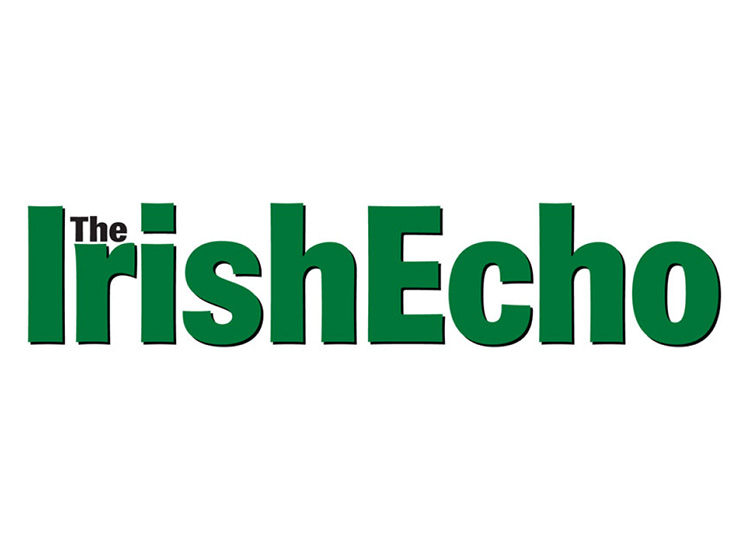Traditional Music / By Daniel Neely
Readers will recall that back in March I wrote about Cormac Breatnach’s fascinating album “The Whistle Blower,” which explored Breatnach’s response to his brother Osgur’s arrest following the Sallins train robbery in 1976. It’s a brilliant work that used music and storytelling to tell a story of civil rights, trauma, and resolution. Those interested in picking up where the album left off should note that RTE Radio 1 premiered an audio documentary called “The Whistleblower” on July 6. It is now available online, visit tinyurl.com/RTE1Whistleblower to stream.
In other news, I recently received “The Girl That Broke My Heart,” a new single from the band West of Connacht. The band includes Andi Leahy (fiddle), Fionnghuala Leahy (flute/clavinet/synthesizers/vocals), and Peter Gallagher (guitars), and they have Yvonne Casey (fiddle), Jali Suso (vocals), and Cyrus Segura (percussion) on board as guests here. What the six have put together is a fascinating approach to making the familiar seem new.
The track features lovely fiddle playing over a seductive and quite forward looking arrangement that contains throwback elements recalling the Bothy Band as well as the harder world music sounds of the 1980s and 1990s. This may come as no surprise, as the Leahy sisters have long pushed trad’s boundaries – if you’ve not heard the tracks they made as members of the band Ground Plan (with Eileen Ivers and Caesar Pacifici), they’re worth hearing, see tinyurl.com/groundplanband.
This is the third track the band has released, the first two being “The Lighthouse Keeper’s Waltz” and “Reel of Rio,” both of which have starkly different stylistic approaches to this one. All three tracks are available on the band’s website, www.westofconnacht.com – check them out!
Also in the player this week is “At Our Next Meeting,” the new album by Portland, Maine-based flute player and singer Hanz Araki. It’s a bold album full of incredible flute playing and great singing set in big, lush arrangements.
Seattle native Araki with this album brings quite a bit to the table. He’s a widely respected musician in the Irish music world and has played widely with many of the tradition’s top names. Over the years he’s been a part of 11 albums, one of which (the album ”Molinos“ by The Paperboys) won a Juno Award in 1998. He was Liveireland’s “New Artist of the Year” in 2006, and won its Vocal/Instrumental Group of the Year in 2012. It’s quite a list of accomplishments, but perfectly understandable once you hear his music.
But what’s fascinating is that Araki is also a sixth-generation shakuhachi master in what is considered one of the most important lineages in the instrument’s history. (Incidentally, his father is Japanese and fifth in that lineage; see www.arakikodo.com to learn more.) For those who mightn’t know, the shakuhachi is a Japanese traditional end blown bamboo flute. It requires incredible control to play at all, much less play well. The remarkably strong, beautiful tone Araki pulls from his wooden flute on this album is surely influenced by his gifts as a shakuhachi player and it gives his sound a distinctiveness that fits his music well.
The album itself is the outcome of an extended stay in west Kerry. “Without question, Dingle changed me,” Araki’s liner notes begin. “That change came at a time more than any other in my life when I needed a change, especially when it came to music.” The feeling of family and community Araki and his wife, the singer Colleen Raney, say they felt on their visit there was transformative, both personally and musically and led to this blast of creativity.
It’s no coincidence that Araki’s joined by a bevy of excellent, (mostly) Dingle-based co-conspirators, including Donogh Hennessy (guitar, baritone guitar, bouzouki, keyboards), Niamh Varian-Barry (violin, viola), Trevor Hutchinson (bass), Méabh Ní Bheaglaoich (button accordion), Laura Kerr (fiddle), and Colleen Raney (backing vocals), who really go above and beyond in bringing his vision to fruition.
What he’s put together here is outstanding. The tune sets are relaxed and approached with a great sense of ease. In particular, I like the reel track “The Hairy Chested Frog / …” and the polka set “The Gullane / ….” Both have sweet arrangements and are played at perfect tempos. “April Waltz” is another great track. A beautiful waltz played at a good dance tempo, the arrangement is brilliantly expressive and features some lovely harmonies.
The album also includes several songs. Araki has a very solid singing voice and really does the songs he’s selected great justice. “The Bold Princess Royal” is a strong opener that really shows Araki’s range. “The Road to Drumleman,” which Araki confesses isn’t about Dingle but captures his feeling for it, is also a stand out for me. I dig his take on Simon & Garfunkel’s “Song for the Asking” as well. It evokes the original, but he manages to put his own spin on it. My favorite track, however, is “Our Captain Cried.” A song that he took from a field recording of June Tabor, it opens with a stunningly evocative bit played on the shakuhachi over a bowed drone. It sets a plaintive tone that is moved along with the entry of fingerpicked guitar. The arrangement fits the words and and Araki’s insightful delivery of them wonderfully.
“At Our Next Meeting” is a lovely album from an excellent musician with a top tier supporting cast. The whole thing is inviting from beginning to end – absolutely worth checking out! To learn more about Araki and to buy the album, visit hanzaraki.com.









